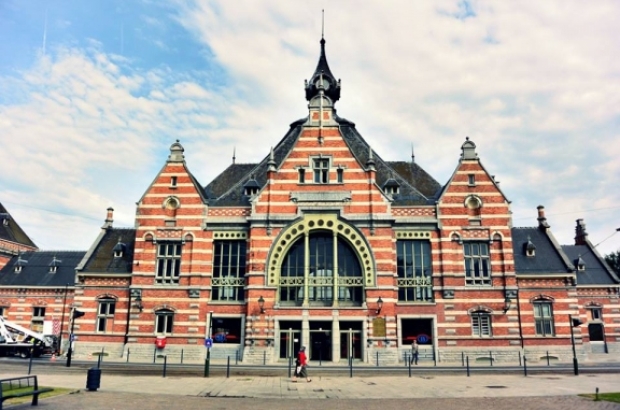- Daily & Weekly newsletters
- Buy & download The Bulletin
- Comment on our articles
Train World to dedicate section to SNCB’s role in deporting Jews
A section in the Train World museum will shed light on Belgian railway operator SNCB’s role in deporting Jews during the Second World War.
SNCB has been researching the matter for some time, including through an extensive report that revealed that SNCB billed Germany for millions of Belgian francs for deportations to concentration camps during the time of the country’s Nazi occupation.
Between 1942 and 1944, SNCB deported more than 25,500 Jewish and Roma people, along with 189,542 Belgian forced labourers and 16,081 political prisoners.
“We need to think carefully about what we can and must do for the future,” Belgium’s mobility minister Georges Gilkinet said in a reaction to the report.
“I will ask a committee, including the historians who produced this report, to reflect on this and to propose to the government over the next 12 months the most appropriate acts of reparation. We need to learn from our history, and to do that, we need to know it.”
SNCB gave researchers from the Study Centre for War and Contemporary Society (CegeSoma) access to all of its archives for the study, titled "Willing Belgium", with the aim of “respectfully clarifying and commemorating”.
After two years of research, historian Nico Wouters presented the final report to the government.
“This is the first time we have found documents that clearly prove that SNCB was paid by the Germans,” Wouters said.
"This policy of cooperation with the occupier was in the interests of the country, and in theory within the Belgian legal framework and the international law of war.
"In fact, the authorities had no choice at the time. The SNCB was essential for supplying industry and the population, so cooperation was inevitable. But obviously, there were limits to this cooperation, and that's where the problems began.”
The report states that no formal decision was taken within the SNCB itself, but that, according to the sources analysed, there were virtually no protests from staff against the deportations.
Most of the deportations took place under armed supervision of German soldiers on "special" trains which ran outside the regular timetable.
German instructions stipulated that only “absolutely reliable” Belgian personnel could be used for the deportations, indicating (as previous reports have also found) that Belgian authorities were conciliatory towards the racial policy pursued by the Nazi occupiers against the Jewish population.
According to this latest report, the Belgian railway company considered its deportation of people during the war as “services rendered” to the occupying forces and a necessary price for maintaining transport and food supplies in Belgium.
That being said, the research did discover instances of resistance: an attack by three members of the Nazi resistance enabled more than 200 deportees to escape from a convoy on 19 April 1943.
Only 5% of those deported via a Belgian convoy survived the concentration camps.
SNCB and railway network operator Infrabel are currently taking note of the report and “its consequential steps”.
















